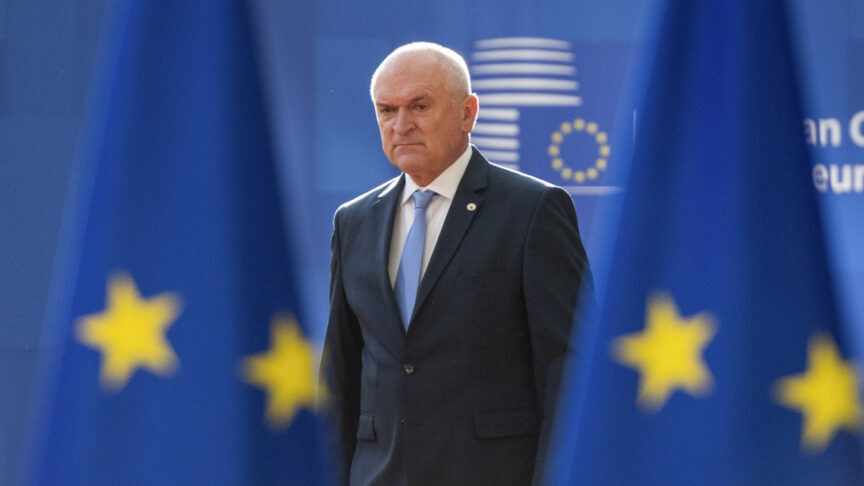John Bolton: Don’t Mention the Norms
Brutal transactional talks is the only language the new National Security Advisor understands.
John Bolton’s ascension to the post of US National Security Advisor feels all too inevitable. All soap operas need to refresh their cast now and again. Sometimes, it helps to bring in a well-established star to create a buzz and boost ratings. President Donald Trump was never likely to get through his presidency without pulling off the dramatic coup of giving Bolton, one of Washington’s most recognisable figures, a big job.
For years, Bolton has been to the American right what Jeremy Corbyn once was to the British left: a hardliner whose scruffy facial hair and sheer cussedness kept everyone entertained.
Few people have less faith in the idea of an international community than Bolton.
Now, like Corbyn, Bolton finds himself on the verge of real power due to a series of highly unlikely political events. As with the Labour leader, it is hard to see how Bolton can put his foreign policy principles into practice without creating some enormous upsets. His addition to Trump’s team should send a shiver through the chancelleries of Europe. The former US ambassador to the United Nations is both sharper and more pragmatic than some caricatures suggest. But if one thing is certain about him, it is that he hates the European Union.
Although Bolton was an outspoken conservative advocate of the Iraq War during the George W. Bush administration, he never actually wielded much power. More mainstream conservatives, such as Secretary of State Condoleezza Rice, kept him away from big decisions and effectively sent him into internal exile at the UN at the start of Bush’s second term. His account of his stint in New York, Surrender is Not an Option, is a surprisingly self-aware depiction of a hardliner falling out of the loop. Yet it is also a coherent statement of the former ambassador’s world view – or, rather, his anti-world view.
Few people have less faith in the idea of an international community than Bolton. He sees diplomacy in terms of transactional deals and hard power, characteristics that presumably endeared him to President Trump. This puts him at odds with more traditional diplomats, who tend to believe in things like relationships and institutions. In his memoirs, he is dismissive of US State Department officials (natural Democrats and instinctive appeasers, apparently) and even less fond of their foreign counterparts. He swats away one especially annoying adversary as “the son of a British diplomat”.
But Bolton’s inherent mistrust of the British Foreign Office is minor compared to his loathing of the EU. He uses his memoir to boast about run-ins with his Russian and Chinese counterparts, and to enumerate his victories over them. He seems to enjoy personal bartering with other representatives of major powers. Yet, for Bolton, EU officials are beyond the pale.
He repeatedly emphasises his distaste for “EUroids” and their love of international norms, which he claims “profoundly [threaten] to diminish American autonomy and self-government, notions that to us spell ‘sovereignty’”. It is possible that, although Bolton has long branded himself as a scourge of the UN, he truly dislikes the EU more. The UN is at least a sovereignty-based body that has US power baked in.
The future National Security Advisor’s loathing for all things European has come back into focus in recent years. He celebrated the Brexit vote as “a true populist revolt”. When António Guterres was selected as UN Secretary-General in October 2016, Bolton groused that he was “a former socialist prime minister of Portugal, a great believer in the European Union”. EU officials and diplomats should prepare for the fact that Bolton is liable not only to take a hard and quite possibly militaristic line on dealing with Iran and North Korea, but will also discount European protests and positions as “EUroid” claptrap.
How should the EU respond to this unwelcome interlocutor? The answer is, perhaps, to grasp that this is not a man who responds well to appeals to order and stability, let alone international law.
And, for God’s sake, don’t mention your norms.
Bolton respects the kind of power that involves militarism or at least gruff self-assertion. European governments are not going to point missiles at Washington to get Trump’s and Bolton’s attention. But they should think about how they can weaponise their tangible sources of influence, such as trade, to engage in some pretty brutal transactional talks with the new National Security Advisor on issues like Iran. This is the only language he understands.
The European Council on Foreign Relations does not take collective positions. ECFR publications only represent the views of their individual authors.


